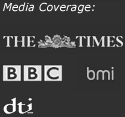Having a business bank account is important to keep your personal and business money separate and it can also add credibility to your business. It is not necessary to have your business account with the same bank that you have your personal account. These are seven of the questions we are most often asked on opening a business account:
- Do you need a business account? Why should I have one?
- What type of business account do I need?
- What is a bank account "Business Card"?
- What should I look for in a business bank account?
- What name can appear on my business cheques?
- How easy is it to open a business bank account?
- How do I go about opening a business account?
1. Do you need one? Why should I have one?
If you are a sole trader you can accept cheques made out to your own name and bank them in your personal account. This is not ideal however, because you will want to be able to identify clearly the money that has been made from your business, who it has come from and of course who you have had to pay for business services or goods. This is much easier by separating the business money into a business account.
You may have formed or have plans to form a limited company. In this case you must open a business account with a bank. Not only to keep personal moneys separate but to satisfy government officials and ensure accountability and transparency in your business dealings.
2. What type of account do I need?
Basically a standard cheque based, current account. You may also be interested in a higher interest savings account - but not at the start, since much of your cash is likely to be ploughed back into the business. Choose to have weekly bank statements, which will give you more control on your cash flow and possible bad debtors.
3. What is a bank account "Business Card"?
You will probably be offered and should get a Business Charge Card from your bank. This will allow you to withdraw cash and pay for day-to-day items easily. This isn't a credit card; it is meant for short-term credit and must be paid off each month by direct debit. However it is better than a Switch or Debit Card, because it doesn't come out of your bank account immediately. A separate application form is needed.
4. What should I look for in a business bank account?
Unlike a savings account, interest rates are less important. While it is good if you do get interest paid when your account is in credit, the bank charges and useful services are important factors. Many banks give a years free banking for new customers, compare what is on offer and chose a bank that seems to value small businesses.
5. What name can appear on my business cheques?
If you are a sole trader you may want to have your business account as your name and the name of the business that you are trading under, ie. "Richard Smith T/A Quality Business Services". This should allow your bank to accept cheques made out to either Richard Smith or Quality Business Services. To be certain you may want to check with your bank. As a Limited Company, you would have the company name on the business checks and would only accept payments to that name.
6. How easy is it to open a business bank account?
Generally it is fairly straightforward and banks are keen to have your business. You don't need to already be trading but should be able to talk them through your business plan or idea. As long as you are not asking for a loan there should be no problem.
7. How do I go about opening a business account?
After you have chosen your bank, make an appointment with the manager or small business adviser. Ask for any forms that are needed to open a business account. At the meeting you should bring with you:
- the completed forms, or the bank manager could help you with filling them in, however you may then need to go away to get signatures of any partners,
- a business plan (can even be an informal one),
- how you are funding your business,
- who your partners are (if any) and who you want able to sign cheques,
- the Certificate of Incorporation if a limited company.
The old days of fearsome bankmanagers, looking down their horn-rimmed spectacles at upstarts thinking about opening a business are gone. You are now in the driving seat, with banks competing for your business. Do your homework beforehand and enjoy the moment. Ask about the benefits and negotiate the best deal for you.
If you would like software to help write a good business plan then Palo Alto do a version that currently is the most popular in the UK.



